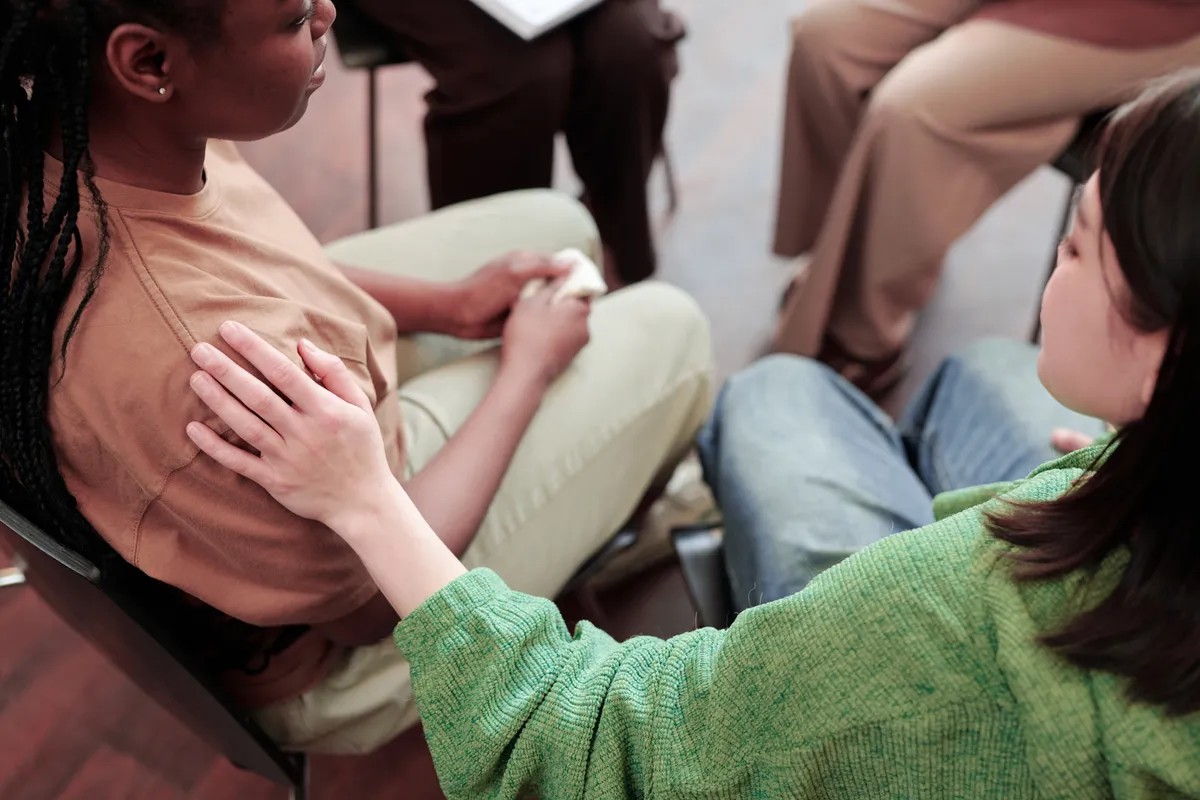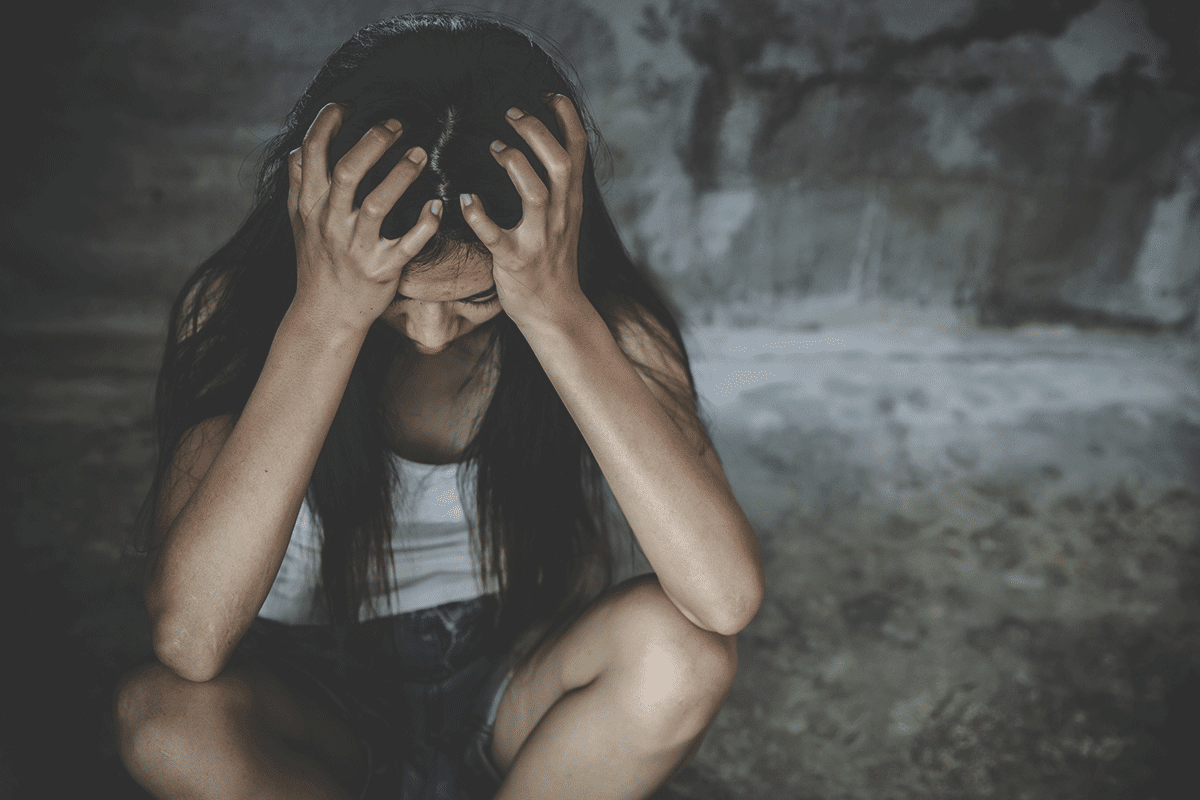Therapies
Personalized therapy that makes addiction treatment work for you.

What Therapy Looks Like at Northpoint
Therapy is a core part of every treatment plan at Northpoint Recovery. It’s how you work through the root causes of addiction, build new coping skills, and stay grounded in recovery.
Build New Skills
Learn how to handle conflict, set boundaries, manage stress, and follow through on goals so you can function better and feel more in control of your recovery.
Deepen Self-Understanding
Explore the patterns behind substance use so you can better understand your choices, your triggers, and how to take control of what happens next.
Inclusive, Affirming Support
We offer specialized care for LGBTQIA+ clients, veterans, and others who need treatment that respects their unique identity and life experiences.
Types of Therapies
Your care team will recommend a mix of therapies based on what works best for you. Here’s a quick look at the core options:
Cognitive Behavioral Therapy (CBT)
- Helps shift negative thought patterns that contribute to substance use.
- Builds problem-solving skills to handle stress in healthy ways.
- Boosts confidence by setting goals and tracking progress.
Dialectical Behavior Therapy (DBT)
- Teaches tools to manage intense emotions without reacting impulsively.
- Strengthens communication skills for healthier relationships.
- Helps you stay present and steady during cravings or stress.
Family Therapy
- Helps families understand addiction and their role in your recovery.
- Improves communication and rebuilds trust at home.
- Addresses and heals family dynamics, which can impact long-term recovery.
Group Therapy
- Creates a sense of connection so people don’t feel alone in recovery.
- Offers support and perspective from others who’ve been through similar struggles.
- Builds social skills and confidence in a safe, judgment-free setting.
Holistic Therapy
- Uses yoga, mindfulness, and art to support emotional healing.
- Promotes overall health through movement, nutrition, and rest.
- Encourages balanced routines that help recovery feel more sustainable.
Individual Therapy
- Offers a private space to talk through personal challenges.
- Helps uncover the deeper reasons behind substance use.
- Provides one-on-one support to stay focused and motivated in recovery.
How Therapy Fits Into Your Treatment Program
Our therapies set the foundation of a treatment plan built around you. Here’s how it works:
Starts with a Personalized Plan
No two people recover the same way. From day one, your therapy plan is shaped around your symptoms, history, and goals. It speaks to what you’re actually going through. We take time to understand what’s behind your substance use and tailor your care to support the changes you want while helping you restore your self-worth.
Integrated Medical & Psychiatric Support
You’ll also have access to medical care, psychiatric support, and, if needed, medication management. This all-inclusive care is especially important for people with co-occurring mental health concerns, so nothing important gets overlooked.
Adapted as You Grow
Recovery is an ongoing process. As your needs change, your care plan does, too. Your team regularly checks how you’re doing and adjusts therapy to match your progress, challenges, or new goals.
Supports Transition and Aftercare
Therapy also helps you prepare for life outside of treatment. That includes working through past relationships, building confidence, and learning how to manage stress in healthier ways. You’ll leave with a stronger foundation and a clear plan for what’s next.

70%
of Northpoint patients complete the recommended episode of care.
FAQs About Therapy for Addiction Recovery
How does therapy help with addiction?
Therapy helps address more than just substance use. It focuses on the emotional, mental, and behavioral patterns that contribute to it.
Different therapies work together to support the whole person, from building coping skills to uncovering root causes behind drug or alcohol addiction, like trauma, anxiety, or stress. Our comprehensive approach makes recovery more sustainable.
What if I’ve never been in therapy?
That’s completely okay. Many people who come to Northpoint Recovery are trying therapy for the first time. Our team will meet you where you are, explain how it works, and help you feel comfortable as you begin.
Can therapy stop cravings for drugs and alcohol?
Therapy can’t eliminate cravings entirely, but it does give you the tools to manage them. You’ll learn how to recognize triggers, regulate emotions, and make choices that support your recovery. Over time, cravings often become less frequent and less intense.
How long will I be in therapy?
Therapies will be a part of your treatment for the entire time you’re in your program. It’s built into your schedule because it plays a key role in helping you stay on track, handle challenges, and heal from what’s underneath the substance use.
After treatment, it’s a good idea to include some or all of the therapies in your aftercare plan to help you keep building on the progress you’ve made.
“Honestly this is my first experience with treatment and I feel soooo lucky to have found Northpoint. The community here and support is unreal. The staff truly does care and take care of everyone so well…Truly an amazing experience.”
— Cheyanne M.
Featured Resources
Explore resources that meet you wherever you are in your journey.

